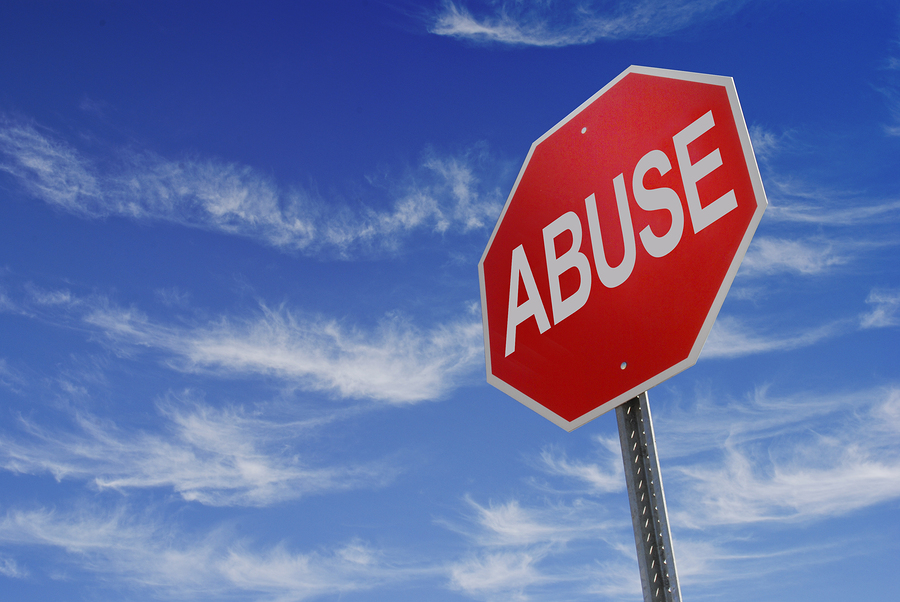 We all do it! We read an article and think “that’s controversial; I’m going to read the comment section and see what people think!” We then almost instantly regret that decision. I did this recently. I was reading about the sexual abuse scandal with USA Gymnastics and doctor Larry Nassar. Like most people, I instantly hurt for the victims. I also felt mad. Anger is one of the most recognizable emotions, so we as humans connect with it first. This is why many will say that anger is not a primary emotion. There is something deeper behind the anger. For me, it was hurt, pain, fear, and sadness.
We all do it! We read an article and think “that’s controversial; I’m going to read the comment section and see what people think!” We then almost instantly regret that decision. I did this recently. I was reading about the sexual abuse scandal with USA Gymnastics and doctor Larry Nassar. Like most people, I instantly hurt for the victims. I also felt mad. Anger is one of the most recognizable emotions, so we as humans connect with it first. This is why many will say that anger is not a primary emotion. There is something deeper behind the anger. For me, it was hurt, pain, fear, and sadness.
When looking at the comment section of the story, I saw person after person blaming the parents. Questions of “they put their daughter’s gymnastics above safety”, or even saying things like “I would never allow my daughter to be alone with a doctor.” Everyone seemed to be pointing fingers at the parents. You might wonder why the need to place blame. Placing blame often occurs because anger is a secondary emotion.
The person in the comments section felt deeply, too, and needed to place the emotion somewhere. Immediately, they recognized anger and wanted to place that anger on something. As parents, we often get terrified and feel vulnerable regarding anything bad that can harm our children. These things can be so scary, that we need to know that we can control them from happening to our child. In order to do this, people often have to blame the situation on someone or something. In this case, many chose to blame the parents. By doing so, it gave the parents a false sense of security and control.
In reality of this situation, most of the parents were in the room during the physical examinations. Unfortunately, there are bad people in this world. What makes it worse, is when the bad people are smart, manipulative, and put in positions of power. There were a number of things that went wrong including people of authority not listening to the victims, a “bad” person being put in a powerful position with easy access, and someone that was extremely good at being manipulative and cunning. This perfect storm allowed for parents to be in the room, talking to their children, watching, and being protective, while Dr. Nassar conned everyone and made it less likely that the child would come forward. In other words, he was extremely good at being a really awful person.
So, let’s stop blaming the victims and their family. I imagine that they have all been through enough. I also imagine that many unnecessarily blame themselves. The guilt of the what-ifs and regrets are bad enough for many, that more finger pointing is likely not helping. Instead, we can learn what we can control. Let’s learn the early signs of sexual abuse in order to stop other “perfect storms” from repeating.
- If a child suddenly does not want to be around another person, this can be a strong sign that something is not right. Remember, that most perpetrators are close family friends or family members, and 90 percent of children know their abuser. Remember, these very bad people are not just strangers, for many young children they are their family. Listen when your child says something about another person.
- Using adult words for body parts or a new understanding of a sexual act.
- Exploring their body with another friend, such as playing “doctor.” Children learn and process information through play, so it would not be unusual for them to process sexual trauma through play.
- When a child suddenly is showing new anger or explosive outbursts. This is a clear sign that something is going on in their world.
- Changes in eating and sleeping habits are often a sign that something is wrong or bothering a person. When you notice changes in your child, this can warrant a conversation and exploration of other warning signs.
- An unusual or sudden fear of certain people or places.
- When a child suddenly becomes secretive regarding relationships of others. This means that they suddenly do not want to talk about their outing with certain family members.
- Sudden nightmares are another sign that your child might be going through something.
- Wanting to look at sexual content at a very young age. This could be on YouTube, porn sites, or anywhere on the internet. If a child is searching for this, and they are younger than middle school, it is a red flag.
- Physical signs, such as soreness or bruises.
- Bedwetting or soiling the pants.
- Pain during urination.
These are just a few of the red flags, and they certainly do not mean that sexual abuse is occurring. However, if any of these red flags are happening to your child, don’t hesitate to reach out to a mental health professional and have a talk with your child. There are many books to read to your child regarding safety. One of my favorite ways to explain body safety to my young clients is to talk about the swimsuit. “Your private parts are only for you, and they are your private parts. Your swimsuit covers up these private parts.” Then you talk about what to do if someone tries to touch in areas that the swimsuit covers. This empowers the child while also taking away shame, as shame often stops a child from telling about the abuse.
The USA gymnastics sexual assault scandal should never have happened; however, it opens the door for open conversation regarding sexual abuse in young children. One of the best preventions is arming your child with an education. Check in with them and let them know they can talk to you about anything. Lastly, watch your child, as every behavior is a form of communication- your child might be attempting to communicate that they need help.
Written by Amy Rollo, M.A., LSSP, LPC-S
Amy Rollo is a Licensed Professional Counselor Supervisor and owner of Heights Family Counseling. Amy has been practicing counseling and diagnostic evaluations for fifteen years. She has doctoral level training in the areas of child and adolescent counseling, evaluations, marriage and family therapy, and adult counseling. Amy Rollo provides counseling and evaluation services in the Houston Heights and surrounding areas. Amy’s goal in counseling is to journey with her clients in order to foster positive changes and growth in their lives. Read more about Amy's counseling style and services by visiting Heights Family Counseling
References/Sources
Shakeshaft, C. (2013). Know the Warning Signs of Educator Sexual Misconduct. Phi Delta Kappan, 94(5), 8-13.
The warning signs of sexual abuse in children. (2002). Jet, 101(24), 60-62.
https://www.parentsprotect.co.uk/warning_signs.htm
About the Author

Amy Rollo (old)
, M.A., LPA, LSSP, LPC-SAmy Rollo is a triple licensed mental health provider in Houston, Texas. She is the owner of a large group practice in Houston, Texas, Heights Family Counseling. Heights Family Counseling is a boutique practice that works with young children, adolescents, teens, adults, couples, and families and understands the unique challenges of each stage of life.
Office Location:
2500 Summer Street #1220
Houston, Texas
77007
United States
Phone: 713.380.1151
Contact Amy Rollo (old)
Professional Website:
www.heightsfamilycounseling.com